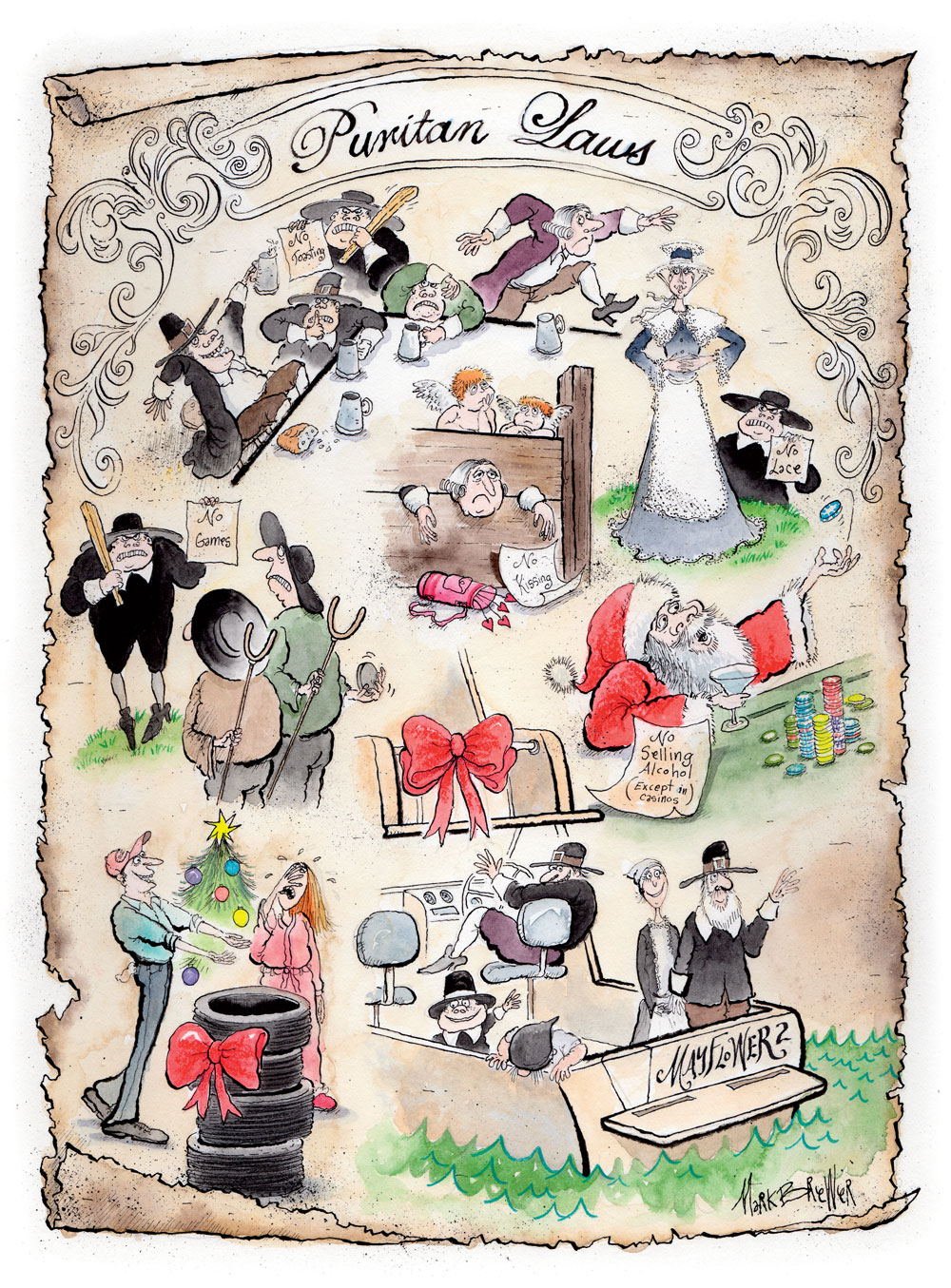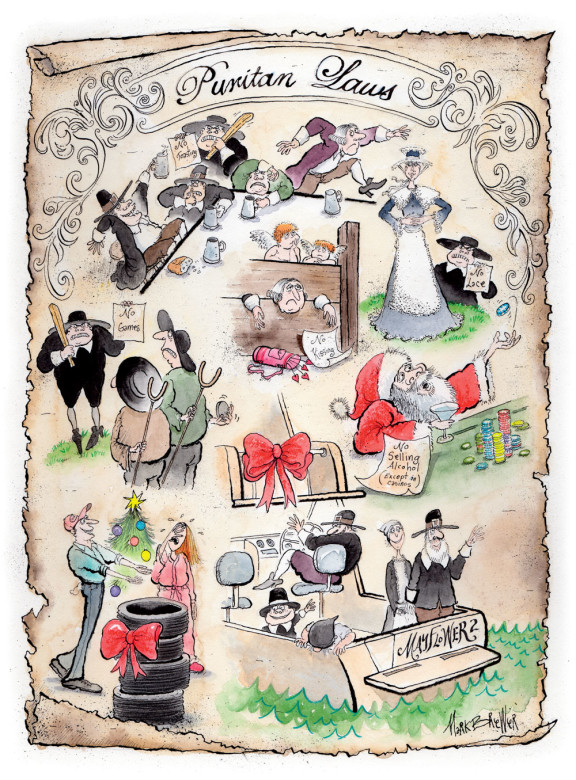Blue Laws? Blame the Puritans | Only in New England
If you time travel to the 17th century, here is a useful guide to Puritan laws to help you stay out of trouble.

Blue Laws? Blame the Puritans | Only in New England
Photo Credit : Illustration by Mark Brewer
Photo Credit : Illustration by Mark Brewer
In times past, kings made all the laws and the rest of us had to go along, regardless of how pointless or bizarre the laws might seem. Then in 1620 the signers of the Mayflower Compact—our country’s first governing document—gave themselves the power to enact “such just and equal lawes … as shall be thought most meete and convenient for the general good of the colony.” In other words, now we could make up our own pointless, bizarre laws.
Like the one the Puritans passed in 1639, banning the making of toasts—not drinking, just making toasts while drinking. Apparently toast-making had evolved into a kind of convivial one-upmanship that caused a dramatic increase in beer consumption—not to mention the invention of the Puritan hangover cure, the “cold cod compress.”
The Puritans may also have invented the fashion police. The same year they tackled the toasting crisis, the General Court of the Massachusetts Bay Colony decreed that some colonists were guilty of “excessive wearing of lace,” a practice that led to “the nourishing of pride and exhausting of men’s estates”—which makes you wonder just how much lace these people were wearing. The Court banned the purchase, sale, and wearing of lace, and violators may or may not have been punished by being forced to wear those silly Puritan hats with the big buckles.
Back then, folks took the commandment about keeping the Sabbath seriously. Any number of activities were prohibited on Sunday, including washing dishes, going for a walk, visiting neighbors, and kissing your wife in public. That’s right, kissing your wife. In 1656, a Captain Kemble returned to Boston after being at sea for three years, met his wife at the front door and kissed her, right on the doorstep. It was a Sunday, and for this “lewd and unseemly behavior” he was ordered to spend two hours in the public stocks.
That same year, the New Haven Colony banned innkeepers and tavern owners from allowing any kind of game-playing on their premises, including the pernicious pastime of shuffleboard. The hard-core sinners who wanted to play shuffleboard while enjoying an adult beverage were forced to do so aboard “cruise schooners,” where Colonial seniors would gamble away their retirement shillings and complain about the high price of quill pens.
Over the centuries, most of the Puritan blue laws have been repealed or simply ignored, the victim of changing times. (Vermont struck down the remainder of its blue laws in the 1980s, although no one outside the state noticed until just recently.)
The blue laws that are still in place tend to restrict retail sales—especially those of liquor and cars—on Sundays and holidays. For example, in Connecticut, it is illegal to sell alcohol on Christmas day, unless of course you’re in a casino. (Because nothing captures the holiday spirit like a mistletoe margarita while you’re playing 21.)
And despite the backward creep of Black Friday sales, retail stores are still prohibited from opening on Thanksgiving day in Maine, Massachusetts, and Rhode Island, which is clearly an infringement of our right to be herded like cattle while spending money on high-tech gadgets that will be obsolete before we can sign our names on the credit card reader.
True, there are exceptions to the holiday laws. In Massachusetts, stores may open on Christmas if they sell, among other things, greeting cards, flowers, and “tires, batteries, and auto parts for emergency use.” (If you still haven’t bought a present for the missus, that qualifies as an emergency; spring for the all-season radials.)
In Maine, an exception is made for “establishments primarily selling boats, boating equipment, sporting equipment, souvenirs and novelties”—which means, basically, L.L. Bean. Even Puritans, after all, wouldn’t try to close L.L. Bean on Christmas.


